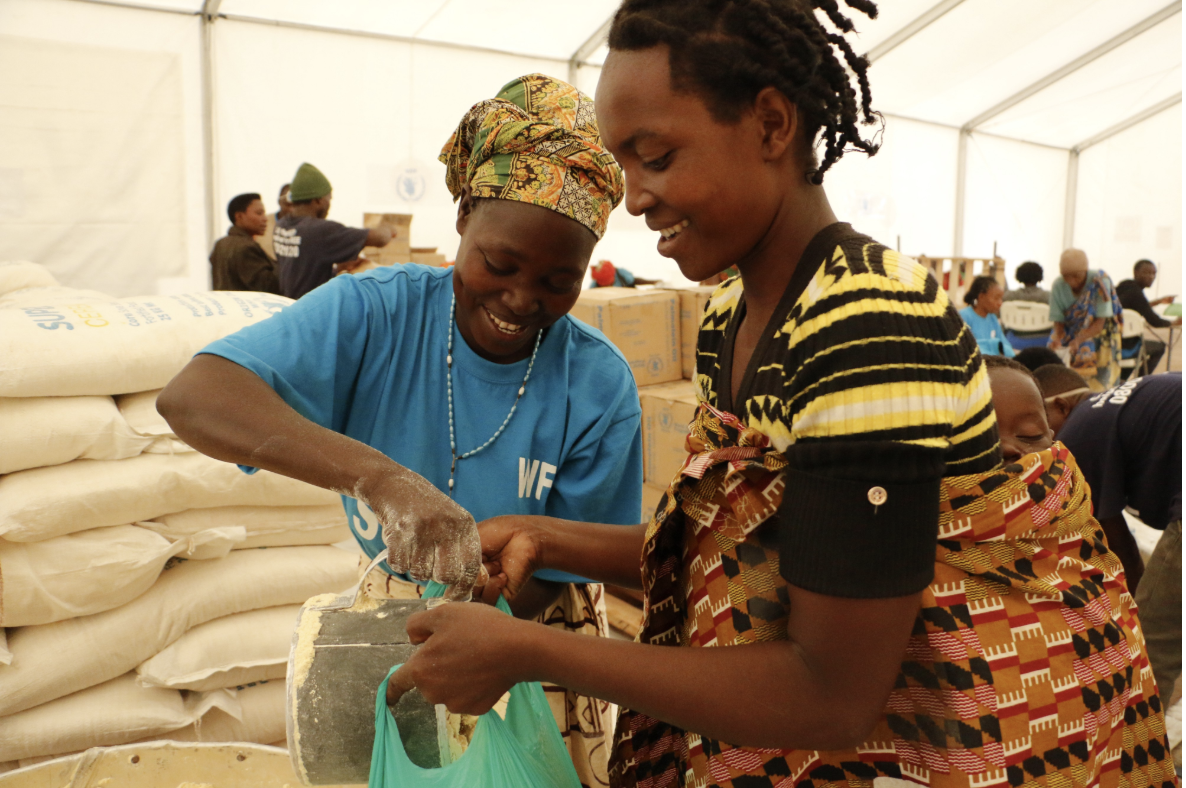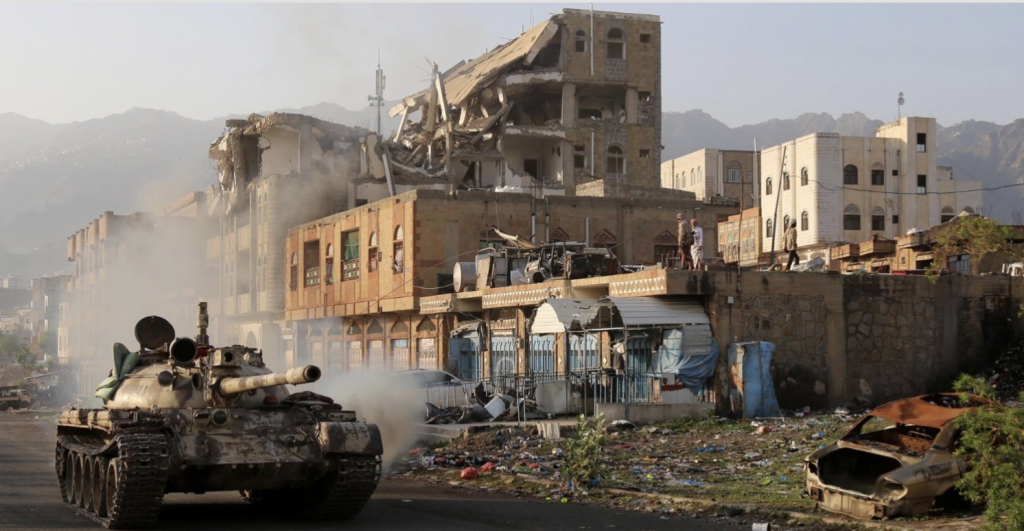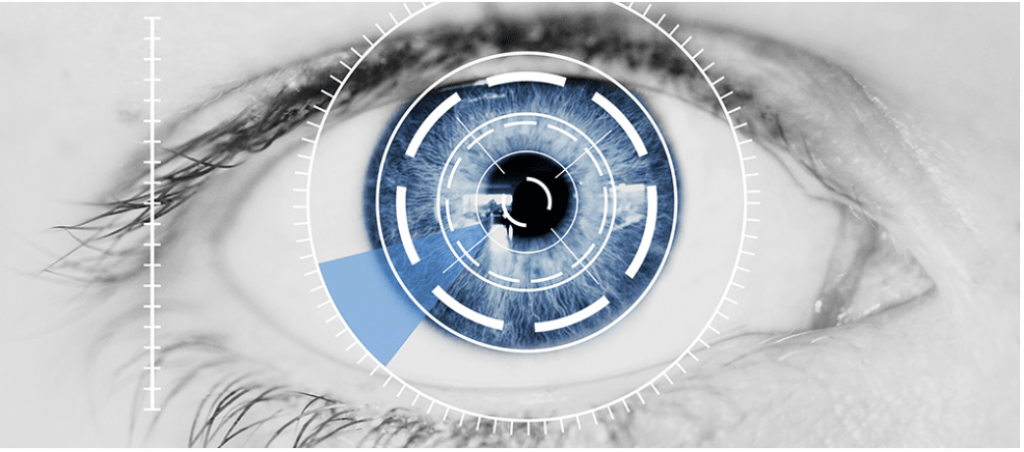Collapsed edifices, ruins piled up on the floor, tanks casually patrolling the streets, smoke encapsulating the country- these have become the norm for the Yemeni. Behind the desolate, lifeless climate, there lies voices to be heard, pain to be resonated with. Clothes powdered with dust, brows knitted together in remembrance of the uplifting chants that sustained them through the journey, hollow eyes reliving the horrors they have been through. Through all this, they are not asking for much, just food.
A quest for food
With the outbreak of a civil war in Yemen in 2015, a humanitarian crisis has unfolded since then. Despite intervention from the United Nations World Food Programme (WFP), food remains a scarcity in Yemen. Houthi rebels have hijacked food aid- not only is food aid “diverted” to areas under their control, but food has also been resold for profit in the local market (Beaumount, 2019).
In recognition of the critical predicament in Yemen, the WFP proposed using biometrics to distribute food aid. This biometric system is meant to ensure that food goes into the hands of registered aid recipients. The Houthis rebels vehemently objected the proposal. Although the “standoff” was eventually resolved, WFP has yet to slowly implement the new system country-wide (WFP, 2019).
Have your iris scanned, then get your portion of food. The cutting-edge technology will better regulate food aid, deter corruption by WFP personnel and local officials alike, all the while convenient and quick! This seems to be the solution that Yemen needs to get out of its present food predicament. What’s wrong?
Rethinking consent
The advent of biometrics, with its implications on personal privacy, has sparked polarised debates. The most sought-after Holy Grail, however, appears to be consent. Consent is the key to unlocking one of the most sacred territories, once owned by respective individuals alone, inaccessible to any others. Following this logic, all controversies involved in the issue of biometrics in Yemen would automatically be neutralised once individual recipient signs, “black- and- white”, agreeing and consenting to WFP the right to their personal biometric information.
Yet, consent does not only refer to a verbal “yes”; a hard-core signature on paper; or a tacit contract. It requires, at its core, an informed decision. An individual, including the Yemeni, should have conducted research, obtained, to some extent, a thorough understanding of the pros and cons of granting others, such as WFP, their personal biometric information.
On top of informed decisions, consent means “yes”, but within the realm of choice. Consent cannot be made under threats or coercion. Consent is democratising and liberating. Saying “yes” to biometrics in exchange for food when they are literally starving is not real consent- it is simply coercion.

Making biometric collection a prerequisite to obtaining food for Yemenis is unethical. With the lack of information about biometrics and the lack of choice among Yemenis, imposing a condition on a universal human right is ultimately unjustifiable.
Cybersecurity threats
The New Humanitarian revealed in January 2020 that the United Nations suffered from a data breach back in 2019, compromising much internal and confidential information. Even the United States has succumbed to cyberattacks, as it recently announced a data breach allegedly by four Chinese military officials. Neither transnational organisations nor states are immune to cybersecurity threats.
If an individual or group’s data is compromised or leaked to a warring faction, it could result in violent retribution for those perceived to be on the wrong side of the conflict.
(Latonero, 2019)
WFP, and the UN as a whole, are prone to hackings, and furthermore are not well-equipped to deal with this highly sensitive biometric information. Coupled with the fact that biometric data is commonly preyed by factions in civil wars, the use of biometrics to administer food aid would ultimately expose both the organisation and the beneficiaries to unnecessary risks.
Some “food” for thought
In the midst of an increasingly ineffectual and unfair food aid distribution in Yemen, biometrics, unfortunately, does not seem to be the viable solution. While WFP has to rethink its strategies, it is also high-time for us to reflect upon our very own biometrics footprints.
Do we know where our biometric information is stored and how it is used, or have we been skipping through the “terms and conditions” page? Have we been proactively doing research to empower ourselves with the freedom to say “no”? Resources, like the internet are important “food” that keeps us informed and empowered. We must start utilising them wisely to our benefit in order to protect ourselves and make a change for others.
References
Beaumont, P. (2019). ‘Yemen: Houthi rebels’ food aid theft only tip of iceberg, officials say.’, The Guardian, 2 January. Available at https://www.theguardian.com/global-development/2019/jan/02/aid-officials-aware-for-months-of-widespread-food-aid-theft-in-yemen (Accessed: 14 February, 2020).
Latonero, M. (2019). ‘Stop Surveillance Humanitarianism.’, New York Times, 11 July. Available at https://www.nytimes.com/2019/07/11/opinion/data-humanitarian-aid.html (Accessed: 14 February, 2020).
WFP (2019). ‘World Food Programme begins partial suspension of aid in Yemen.’, Relief Web, 20 Jun. Available at https://reliefweb.int/report/yemen/world-food-programme-begins-partial-suspension-aid-yemen (Accessed: 14 February, 2020).
Photo Accreditation:
Header Image Credit: WFP/ Claire Nevill
IVolunteer International is a 501(c)3 tech-nonprofit registered in the United States with operations worldwide. Using a location-based mobile application, we mobilize volunteers to take action in their local communities. Our vision is creating 7-billion volunteers. We are an internationally recognized nonprofit organization and is also a Civil Society Associated with the United Nations Department of Global Communications. Visit our profiles on Guidestar, Greatnonprofits, and FastForward.




